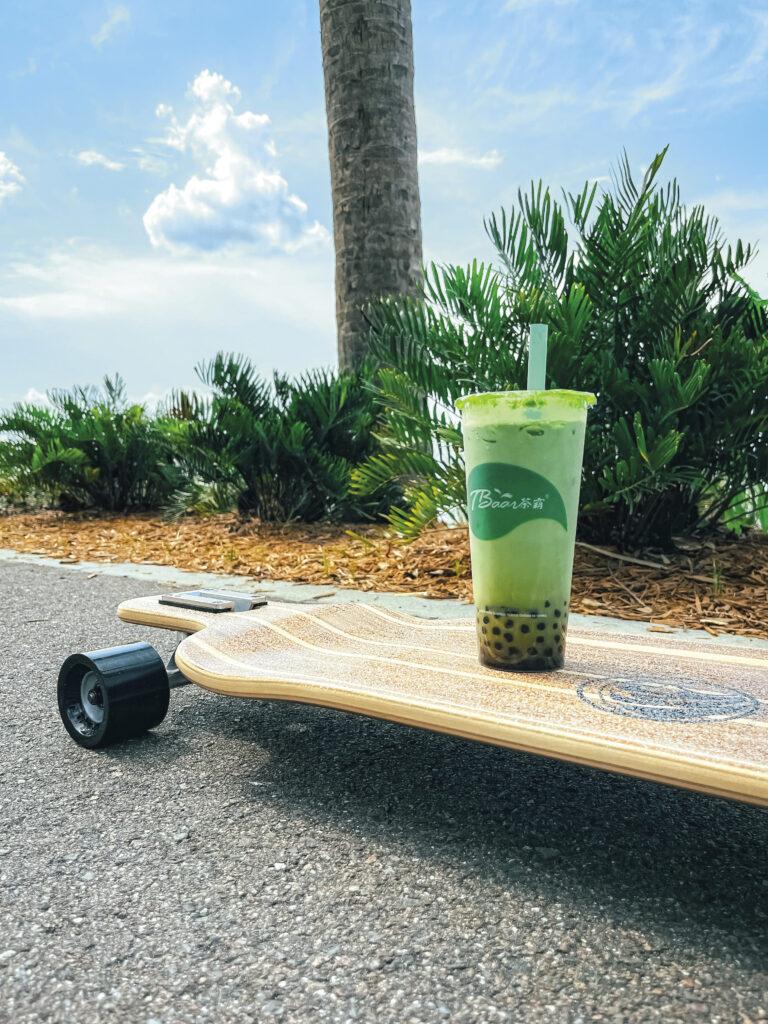What will be on the global dinner table in 2024? A F&B trend summary
Our magazine takes a look at some of the international trends in food product development for 2024. Despite recent and current events and overwhelming difficulties, consumers insist on continuing to fill their everyday lives with as much good as possible, and their expectations based on this insistence are shaping the trends in food and drink innovation this year.
This article is available for reading in Trade magazin 2024/2-3
More luxurious weekdays
Amid inflationary pressures and cost-of-living difficulties, consumers are reluctant to give up the small pleasures that life has to offer. Although the proportion of people dining in restaurants has fallen, consumers are also looking to make their weekdays more special at home. According to a Datassential survey, 34% of people treat themselves to something special more than once a week. Simple meals at home can be transformed into restaurant-style dishes with the help of truffle salt, specialty oils, spice blends and butters – says the Specialty Food Association’s Trendspotter Panel 2024 report.

Although the proportion of people going to restaurants has declined, consumers are also trying to make their weekdays more special at home
Discovering the flavours of the world
In addition to discovering the flavours of the world, consumers are also open to the cultural experiences that food can offer, according to the experts of SFA. The preference for traditional food continues to grow, with more and more small-scale producers around the world working with family recipes that are rich in flavour and in history, linked to their home and culture. More and more enterprising consumers are venturing to new regions to learn about ingredients and recipes (e.g. Africa).

Asian food products are now attracting not only second-generation Asians, but also non-Asian shoppers
Vibrant flavours and colours
Shoppers seeking luxury and self-expression are looking for indulgent flavours and vibrant colours that reflect meaningful values, reports the Chicago-based multinational food processing and trading company ADM. Pepper: the popularity of peppers, predicted by Whole Foods Markets, might seem obvious, as they can enhance and nuance the taste of virtually any food or beverage, from cold-pressed juices to confectionery. Tahini: another SFA flavour prediction concerns tahini, the growing popularity of which is relatively recent. Tahini is increasingly used in smoothies, coffee, biscuits and baked goods outside the Middle East.
Health first
Consumers are now keen to invest in the health of their loved ones as well as their own, and are looking for foods and functional ingredients that are rich in vital nutrients to support these goals, and potentially to prevent the occurrence of chronic diseases, according to KeHE Distributors. Now the question is how manufacturers will come up with innovative and forward-thinking products to meet new consumer preferences? While ADM claims healthier products can attract consumer attention by promoting functional benefits such as well-being, relaxation and energy, Euromonitor emphasises the need for simple health solutions that deliver quick results.
Convenience taken a level higher
Consumers continue to search for ways to get the most out of the taste and quality of food and drinks, while becoming increasingly open to solutions that make this easier to achieve. The quest for convenience now extends beyond home cooking and is becoming the driving force behind on-the-go innovations, as we are returning to our busy daily routines. When it comes to functional ingredients, mushrooms – a favourite for their taste, texture and health benefits – are enjoying a renaissance among consumers across all food and drink categories.
Simplifying plant-based foods
Whole Foods Market trend forecasters have detected a shift towards shorter and simpler ingredient lists within the plant-based category, with mushrooms, nuts, tempeh and pulses now taking centre stage in complex meat alternatives. In 2024 cell-based foods will become more popular, thanks to their sustainable and ethical production processes that simultaneously address environmental and animal welfare concerns, while providing consumers with a familiar taste experience, SFA says.
Keywords: regeneration, upcycling and sustainability
The environmental impact of food is just as important to consumers as any other characteristic. Land regeneration, upcycling and sustainable packaging have become keywords, but water conservation is also a popular conversation topic among food manufacturers. As consumers are trying to live more sustainable lifestyles, they expect brands to be more and more transparent in their sustainability efforts, explains Euromonitor International. A good example of this trend is buckwheat snacks manufacturer Lil Bucks and crackers maker Better with Buckwheat, who rely on sustainable buckwheat for protein and fibre, which is used in a wide range of foods from pancake and waffle bases to pasta and dairy-free milk.

Vegetarian salad on brown paper: simple ingredients in sustainable packaging
Drinks: functional ingredients and no alcohol
In the beverage category Yelp’s prediction is that low-alcohol, elderberry-based Hugo Spritz, new Martini variations, coffee cocktails and creative fruit and vegetable smoothies will continue to come in large numbers in 2024. Although beverage is a smaller segment than food, the market has expanded faster over the past few years, according to SFA data. 2024 will bring a range of single-serve non-alcoholic, carbonated and non-carbonated drinks with sophisticated flavours, as well as energy boosting or calming coffees, teas and broths.

The trendy drinks of the future are made with herbs instead of sugar, salt or artificial ingredients
Explosive growth for AI
Food Dive has noted in its summary of trends for 2024 that artificial intelligence (AI) will become even more embedded in the operations of companies this year, in an effort to reduce costs and increase efficiency. This year small and medium-sized companies are very likely to turn to AI, alongside Coca-Cola and AB InBev’s Beck’s beer brand, which have already started using it. Besides its role in increasing production, pricing, product development and supply chain efficiency, AI can also be used in many other areas, e.g. Infor has recently worked with a Dutch goat cheese producer to optimise the use of ingredients in production to increase output. //
Related news
Coca-Cola To Discontinue Frozen Products In US And Canada
🎧 Hallgasd a cikket: Lejátszás Szünet Folytatás Leállítás Nyelv: Auto…
Read more >Coca-Cola scraps Costa Coffee sale after bids fall short
🎧 Hallgasd a cikket: Lejátszás Szünet Folytatás Leállítás Nyelv: Auto…
Read more >Related news
40 secure jobs, sustainable solutions – new BURGER KING® in Csepel
🎧 Hallgasd a cikket: Lejátszás Szünet Folytatás Leállítás Nyelv: Auto…
Read more >








